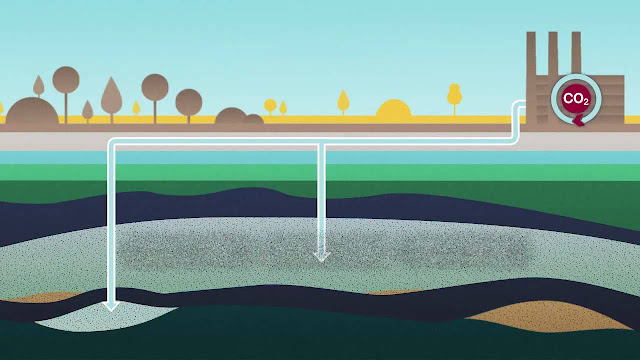Government Initiatives and Policies Impacting the Carbon Capture and Storage Market

Carbon Capture and Storage Market
Government initiatives and policies play a crucial role in shaping the Carbon Capture and Storage (CCS) market. Recognizing the urgent need to address climate change and reduce greenhouse gas emissions, governments around the world have implemented various measures to promote the deployment of CCS technologies. These initiatives aim to provide regulatory frameworks, financial incentives, and supportive environments for CCS projects to thrive.
One key aspect of government
initiatives is the establishment of regulatory frameworks for CCS. These
frameworks define the legal requirements, permitting processes, and monitoring
protocols for CCS projects. They ensure the safe and effective implementation
of CCS technologies, addressing concerns related to CO2 storage, carbon verification, and environmental
impact. Governments collaborate with regulatory bodies and industry
stakeholders to develop robust standards and guidelines for CCS operations.
Financial incentives are another
critical tool used by governments to encourage the development of CCS projects.
These incentives can take the form of grants, subsidies, tax credits, or carbon
pricing mechanisms. For example, governments may provide direct funding to
support research and development efforts in CCS technologies. They may also
offer financial incentives to companies that successfully deploy CCS projects,
creating a favorable investment environment.
Furthermore, governments promote
the adoption of smart technologies and innovation in the Carbon
Capture and Storage Market. Smart technologies enable real-time
monitoring and verification of CO2 storage sites, ensuring the integrity and
safety of stored carbon. These technologies include remote sensing, satellite
imaging, and advanced monitoring systems. Governments collaborate with research
institutions and industry experts to develop and deploy smart technologies that
enhance the efficiency and effectiveness of CCS operations.
Government initiatives also
include international collaborations and partnerships to share knowledge, best
practices, and funding resources. Organizations such as the International
Energy Agency (IEA) and the Global CCS Institute facilitate global cooperation
in CCS research and development. Governments participate in multilateral
agreements and forums to exchange information and work towards harmonized
approaches in CCS deployment.
Moreover, some governments
establish national CCS strategies and targets to drive the Carbon
Capture and Storage Market forward. These strategies outline the
country's objectives, timelines, and milestones for CCS development. They
provide a roadmap for government agencies, industry stakeholders, and research
institutions to align their efforts and investments in CCS projects.
In summary, government
initiatives and policies have a significant impact on the Carbon Capture and
Storage market. By providing regulatory frameworks, financial incentives, and
supportive environments, governments create the necessary conditions for the
successful deployment of CCS technologies. Carbon
verification Market and the adoption of smart technologies enhance the
reliability and effectiveness of CCS operations. As governments continue to
prioritize climate change mitigation, their initiatives will play a pivotal
role in shaping the future of the CCS market and driving the transition to a
low-carbon economy.



Comments
Post a Comment